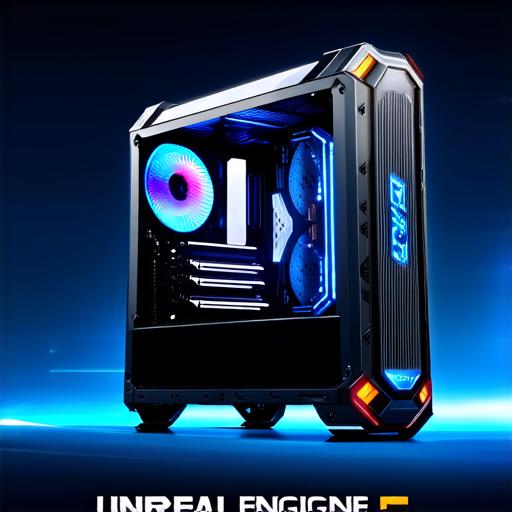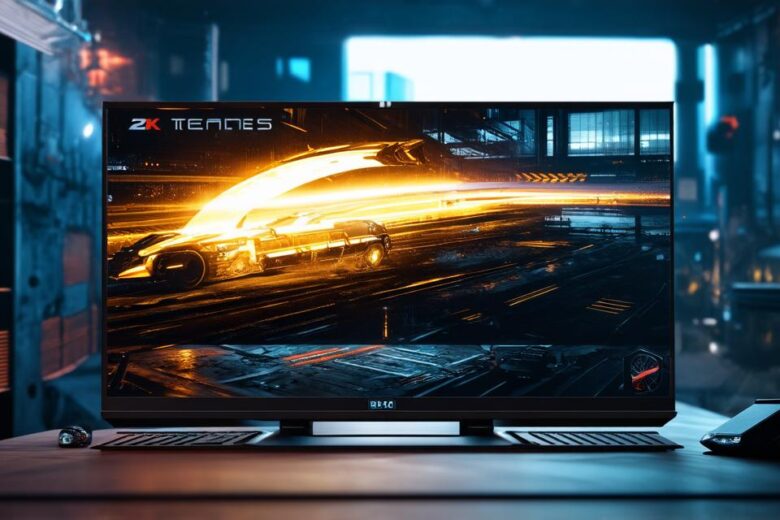Introduction
Unreal Engine 5 is a powerful and versatile game engine that enables developers to create stunningly realistic games for various platforms. However, developing games with Unreal Engine 5 requires a high-performance computer that can handle the demands of real-time rendering, complex simulations, and large data sets. In this guide, we will explore the key factors to consider when building an optimal computer for developing games with Unreal Engine 5, including hardware requirements, software configurations, and performance benchmarks.
Hardware Requirements
CPU
The
CPU
(Central Processing Unit) is the brain of the computer and plays a crucial role in running Unreal Engine 5 applications. For optimal performance, it’s recommended to use an Intel Core i7 or AMD Ryzen 9 processor with at least eight cores and a clock speed of 3 GHz or higher.
GPU
The
GPU
(Graphics Processing Unit) is responsible for rendering graphics in real-time, which is essential for creating immersive gaming experiences. A dedicated
GPU
such as an NVIDIA GeForce RTX 2080 Ti or AMD Radeon VII can significantly improve the performance and visual quality of Unreal Engine 5 applications.

RAM
RAM (Random Access Memory) is responsible for storing data and executing instructions quickly. For developing games with Unreal Engine 5, it’s recommended to use at least 16 GB of
RAM
, but 32 GB or more can provide better performance and stability.
Storage
Storage devices such as hard drives (HDD) and solid-state drives (SSD) are responsible for storing and accessing files and data quickly. A combination of HDDs and SSDs can provide the best balance between storage capacity and performance. For optimal performance, it’s recommended to use an SSD with at least 512 GB of storage space, but a larger SSD or an additional HDD can be used for storing larger files and data sets.
Software Configurations
Operating System
The operating system (OS) provides the foundation for running applications and managing system resources. For optimal performance with Unreal Engine 5, it’s recommended to use Windows 10 or macOS 10.14 Mojave. These OSs have built-in support for DirectX and OpenGL, which are the primary rendering APIs used by Unreal Engine 5.
Graphics Drivers
The graphics drivers are responsible for controlling the
GPU
and ensuring optimal performance. For Unreal Engine 5, it’s recommended to use the latest version of NVIDIA GeForce or AMD Radeon drivers, which can be downloaded from the manufacturer’s website.
Development Tools
Unreal Engine 5 requires several development tools, including Visual Studio for C++ programming and Unreal Editor for creating and editing game assets. It’s recommended to use the latest version of these tools to ensure compatibility with the latest version of Unreal Engine 5.
Performance Benchmarks
To determine the optimal hardware configuration for developing games with Unreal Engine 5, several benchmarks can be used to measure the performance of different combinations of
CPU
,
GPU
,
RAM
, and storage devices. Some popular benchmarking tools include Unigine Valley, 3DMark, and Geekbench.
Unigine Valley is a cross-platform benchmark that measures the performance of graphics rendering in real-time. It’s recommended to use Unigine Valley to measure the performance of different
GPU
s for developing games with Unreal Engine 5.
3DMark is a benchmarking tool that measures the overall performance of a computer, including
CPU
,
GPU
,
RAM
, and storage devices. It’s recommended to use 3DMark to determine the optimal hardware configuration for running Unreal Engine 5 applications.
Geekbench is a benchmarking tool that measures the performance of
CPU
s and
GPU
s in real-world workloads. It’s recommended to use Geekbench to measure the performance of different
CPU
s for developing games with Unreal Engine 5.
Case Studies
To illustrate the benefits of using an optimal computer configuration for developing
